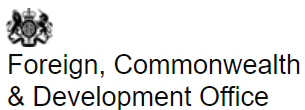UK-Ghana trade links boosted as political and business leaders meet in London – African Business
Download logo
As the UK-Ghana Business Council met in London, this week, economic ties between the UK & Ghana were strengthened.
Minister for Africa Vicky Ford and Minister for Trade Policy Penny Mordaunt co-chaired the discussions and Minister for Trade & Industry Alan Kyerematen led the senior delegation from Ghana.
The formation of the UK-Ghana Investors Group, made up of investors and business leaders with the aim of creating investment opportunities, was announced and UK representatives welcomed recent deals in the gold supply chain and security sectors worth more than £100 million.
Established in 2018, the UKGBC is a high-level forum to promote bilateral relations and partnerships between Ghana’s private sector and UK counterparts.
Vicky Ford, Minister for Africa, stated:
Trade between the UK and Ghana is worth nearly a billion pounds annually, but there are so many more things our two economies could do together.
The signature of the UK-Ghana Trade Partnership Agreement last year paved the way for closer economic ties and this week we’ve discussed the potential for huge growth in both countries, driven by British International Investment’s ambitious plan for the year ahead.
I’d like to thank the Trade Minister for contributing to such a valuable discussion and look forward to visiting Ghana in the weeks to come.
Penny Mordaunt is Minister for Trade Policy.
The UK’s trade ties with Ghana already help businesses in both our nations flourish, and I’m determined to deepen these ties to create more jobs and deliver mutual prosperity.
I’m delighted we have now been able to meet in person at this UK-Ghana Business Council, to identify further barriers to trade and increase market access, particularly in the maritime and digital sectors.
This will allow us to continue our excellent progress on the UK/Ghana Trade Partnership Agreement. I look forward to working alongside Ghanaian counterparts in completing the remaining elements of this deal.
Ghana is one of the fastest-growing economies in the region and the UK’s fourth-biggest export market in sub-Saharan Africa, with the UK aiming to boost UK-Ghana trade to £1.4 billion by 2024.
Since the last meeting of the UKGBC, the UK-Ghana economic partnership has supported more than £223m of investment in infrastructure across the country, the biggest UK investment into infrastructure in Ghana in a generation.
The Council meeting also took place just weeks after announcing a £2 million partnership with UK charity Shell Foundation, to turbocharge Ghana’s e-mobility, battery, solar and charging sector.
The council members celebrated the successes of the UK-Ghana partnership in the past year, including:
- UK companies have delivered roads, bridges, security and high-speed Internet to Ghana, including Mabey Bridge and One Web.
- UK support through the Jobs and Economic Transformation (JET) programme has driven growth in Ghana’s auto, garments and pharma sectors and drawn global investment toward Ghana.
- The UK-Ghana Trade Partnership Agreement (signed in 2021) provides tangible benefits for both Ghana and the UK by allowing Ghana duty free, quota-free access on UK markets.
- British International Investment has appointed Kwabena Asante Poku, a former partner and Head, Transaction Services in Ghana and Nigeria at PwC as the Head of its Ghana operations. Asante-Poku updated members on BII’s ambitious plans for a new SME fund in Ghana and other key projects.
The UK is committed towards strengthening trade ties in Africa. Last month the UK welcomed the Secretary General of the African Continental Free Trade Area, Wamkele Mene, to London, where we announced £35 million of UK funding to support its implementation.
Distributed by APO Group, United Kingdom Foreign, Commonwealth and Development Office.
APO issued this Press Release. APO has issued this Press Release. The content has not been reviewed by African Business’ editorial team. This announcement is solely the responsibility of the issuer.
Source: african.business
